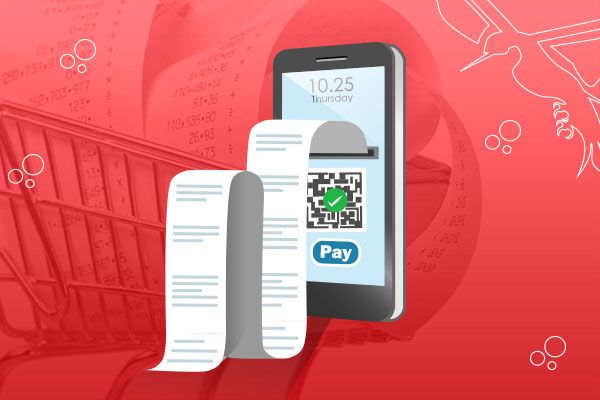Is it mandatory to include the buyer's address on the invoice when selling goods to foreign customers in Vietnam?
 Bấm vào đây để xem bản dịch tiếng Việt của bài viết này
Click HERE to see the Vietnamese translation of this article
Bấm vào đây để xem bản dịch tiếng Việt của bài viết này
Click HERE to see the Vietnamese translation of this article
Is it mandatory to include the buyer's address on the invoice when selling goods to foreign customers in Vietnam? - Mr. Tien (Ha Noi)
- Is it mandatory to include the buyer's address on the invoice when selling goods to foreign customers in Vietnam?
- What are unnecessary contents of e-invoices separately issued by tax authorities in Vietnam?
- If an enterprise's operation is suspended, is the enterprise required to suspend its use of e-invoices in Vietnam?
Is it mandatory to include the buyer's address on the invoice when selling goods to foreign customers in Vietnam?
Pursuant to Clause 5 Article 10 of the Decree 123/2020/ND-CP stipulating cases of issuance of invoices when selling goods to foreign customers in Vietnam:
Contents of invoices
...
5. The buyer’s name, address and TIN
a) If the buyer is a business establishment that has a TIN, the buyer’s name, address and TIN shall be written on the invoice shall be same as those written on the certificate of enterprise registration, certificate of branch registration, certificate of household business registration, taxpayer registration certificate, TIN notification, investment registration certificate, or certificate of cooperative registration.
If the buyer’s name or address is too long, the seller may shorten some common nouns (such as P instead of “Phường” (ward), Q instead of “Quận” (district), TP instead of “Thành Phố” (city), TNHH instead of “Trách nhiệm Hữu hạn" (limited liability), KCN instead of “khu công nghiệp” (industrial park), SX instead of “sản xuất” (manufacturing/ production), CN instead of “Chi nhánh” (branch), etc.) as long as the house number, names of the street, ward, district, city, name of the company are written and conformable with business registration or tax registration of the company.
b) If the buyer does not have a TIN, the invoice will not have the buyer's TIN. In case of sale of special goods/services to an individual mentioned in Clause 14 of this Article, the buyer’s name and address are not mandatory on the invoice. In case of sale of goods/services to a foreigner in Vietnam, the buyer’s information and address may be replaced with information in his/her passport or travel document and his/her nationality.
As regulations above, in case of sale of goods/services to a foreigner in Vietnam, the buyer’s information and address may be replaced with information in his/her passport or travel document and his/her nationality.

Is it mandatory to include the buyer's address on the invoice when selling goods to foreign customers in Vietnam? - image from internet
What are unnecessary contents of e-invoices separately issued by tax authorities in Vietnam?
Pursuant to Clause 14 Article 10 of the Decree 123/2020/ND-CP stipulating e-invoices in the form of stamps, tickets or cards:
Contents of invoices
...
14. Exceptions:
a) An electronic invoice does not necessarily have the buyer’s electronic signature, even if goods/services are sold overseas. In case the buyer is a business establishment and both the buyer and the seller agrees to use digital or electronic signatures on the e-invoice issued by the seller, the invoice shall bear the buyer’s and the seller’s digital or electronic signatures as agreed.
b) E-invoices separately issued by tax authorities do not necessarily bear the buyer’s and the seller’s digital signatures.
c) The e-invoice issued by a supermarket or shopping mall to a non-business buyer does not necessarily bear the buyer’s name, address and TIN.
E-invoices for sale of oil and gas to non-business individuals do not necessarily bear the name, form number, reference number, and number of the invoice; the buyer’s name, address, TIN, electronic signature; the seller’s digital or electronic signature; VAT rate.
d) E-invoices in the form of stamps, tickets or cards do not necessarily contain the seller’s digital signature (except for those authenticated by tax authorities), the buyer’s information (name, address and TIN), VAT rate and VAT amount. Pre-priced electronic stamps, tickets and cards do not necessarily contain the unit, quantity and unit price.
...
As regulations above, e-invoices separately issued by tax authorities do not necessarily bear following contents:
- The buyer’s digital signatures
- The seller’s digital signatures
If an enterprise's operation is suspended, is the enterprise required to suspend its use of e-invoices in Vietnam?
Pursuant to Article 16 of the Decree 123/2020/ND-CP, enterprises shall suspend their use of e-invoices in the following cases:
Suspension of use of e-invoices
1. Enterprises, business entities, other organizations, household or individual businesses shall suspend their use of authenticated and unauthenticated e-invoices in the following cases:
a) An enterprise, business entity, other organization, household business or individual business has its TIN invalidated;
b) An enterprise, business entity, other organization, household business or individual business does not operate at the registered location as verified and announced by the tax authority;
c) An enterprise, business entity, other organization, household business or individual business has sent a notification of business suspension to a competent authority;
d) An enterprise, business entity, other organization, household business or individual business is banned from using e-invoices by the tax authority for the purpose of enforcement of payment of tax debts;
dd) E-invoices are used to sell smuggled goods, banned goods, counterfeits, goods violating intellectual property rights as detected and informed by competent authorities;
e) E-invoices are used for short selling of goods or services for fraudulent purposes as detected and informed by competent authorities;
g) A business registration authority or competent authority requests an enterprise to suspend operation in a conditional business line after finding that this enterprise does not fully satisfy the business conditions prescribed by law.
If the tax authority, through inspection, discovers that the enterprise is established for the purpose of trade and use of illegal e-invoices or illegal use of e-invoices for tax evasion purposes, the enterprise shall face administrative penalties and be suspended from use of e-invoices according to the decision issued by the tax authority.
...
If an enterprise's operation in Vietnam is suspended, that enterprise is required to suspend its use of e-invoices in Vietnam.
Best regards!
-
Editorial Board of LawNet
- Số 19 Nguyễn Gia Thiều, P. Võ Thị Sáu, Q.3, TP. HCM.
- Click to See more

